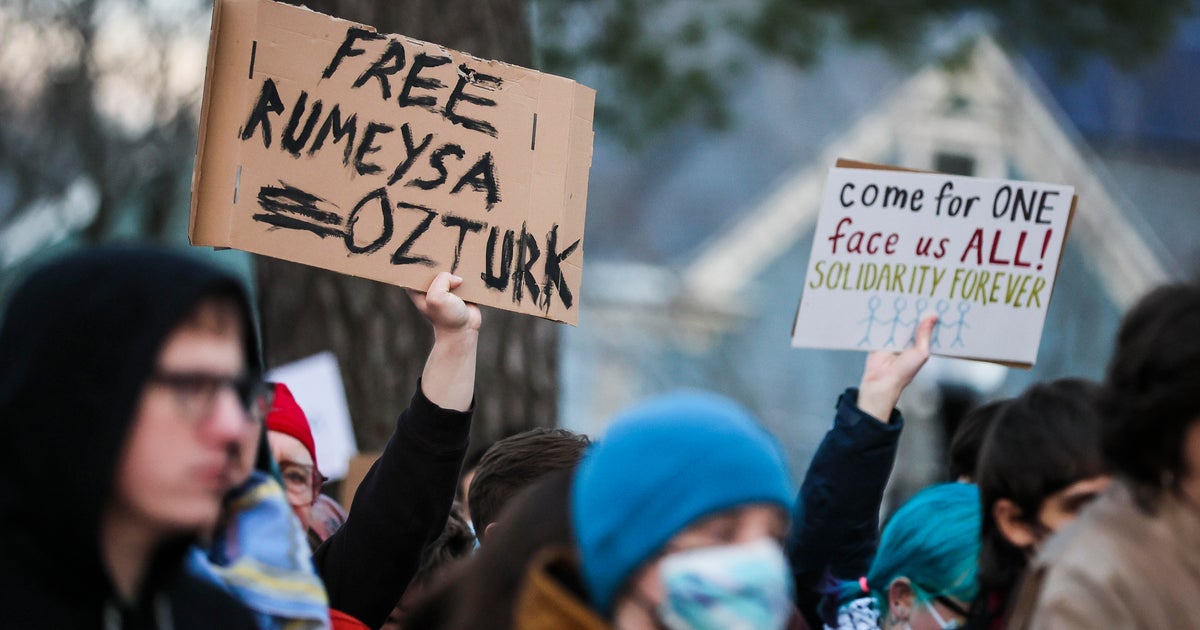In a significant legal decision that underscores the ongoing tensions between immigration policies and individual rights, the U.S. Court of Appeals for the 2nd Circuit recently mandated compliance with a district court’s order by the Trump administration. This order requires the U.S. government to transfer Rumeysa Ozturk, a PhD student from Tufts University, currently detained in Louisiana, to Vermont. This ruling is a pivotal moment in Ozturk’s legal battle against her detention, which she contends infringes upon her constitutional rights.
Rumeysa Ozturk, a 30-year-old doctoral candidate at Tufts University, found herself at the center of a contentious legal battle after being detained by ICE agents near her residence in Somerville, Massachusetts. This incident occurred on March 25, following the revocation of her student visa, a move she claims was done without prior notification. Subsequently, Ozturk was transported through several states and eventually placed in an immigration facility in Basile, Louisiana.
Ozturk’s legal challenges stem from allegations by the Department of Homeland Security and ICE that she was involved with associations potentially harmful to U.S. foreign interests. Specifically, they claim these associations created hostile environments for certain student groups and might have indicated support for a recognized terrorist organization. These claims hinge, in part, on an opinion piece Ozturk co-authored that was critical of Israel’s actions, which appeared in the Tufts student newspaper.
The narrative of her detention and the ensuing legal proceedings highlight the broader implications of visa revocations among foreign students. Ozturk is among several hundred students whose academic pursuits in the United States have been jeopardized by such actions, often under accusations of supporting Palestinian events or participating in campus protests that criticize Israeli policies.
Following her detention, a legal fight ensued that included a petition filed by Ozturk’s lawyers challenging the constitutionality of her arrest and subsequent detention. This challenge argued that her First and Fifth Amendment rights were being violated. Although initially lodged in a federal district court in Massachusetts, the case was later transferred to Vermont, believing that jurisdiction was proper there since she was detained in that state momentarily.
The district court in Vermont, presided over by Judge William Sessions, responded to the petition by ruling that Ozturk must be transferred to ICE custody in Vermont. The decision also scheduled a bail hearing and set dates to consider the merit of her habeas corpus petition. However, this order was temporarily stalled by an emergency appeal to the 2nd Circuit Court by the Trump administration, which sought to leave Ozturk in Louisiana.
The appellate court’s decision to uphold the transfer underscores multiple critical points made by the judges involved. They highlighted the necessity for Ozturk to have adequate access to legal and medical services, better conditions of confinement, and a swift resolution of her case. Furthermore, they pointed out the importance of her being able to participate effectively in her habeas proceedings.
Opposition to this transfer by the Justice Department was not successful; the three-judge panel on the 2nd Circuit emphatically rejected it. One week was given to the administration to comply with the transfer order, a timeline that indicates the court’s intent to expedite proceedings in light of the issues at stake.
This case not only throws into relief Ozturk’s personal ordeal but also tangentially touches upon another similar case. The court considered alongside Ozturk’s, the matter of Mohsen Mahdawi, a Palestinian student at Columbia University, detained under contentious circumstances which were purportedly related to his immigration status but feared to be politically motivated.
The outcome of these legal battles may potentially set significant precedents regarding the treatment of international students, the limits of political and academic freedom, and the extent of constitutional protections against governmental overreach in immigration control.
As the legal skirmishes unfold, they draw attention to the fine balance between national security interests and individual rights in the sphere of U.S. immigration law. They also highlight the critical role of the judiciary in safeguarding constitutional guarantees against potential executive excesses, especially in cases where the procedural and substantive rights of vulnerable populations like foreign students are at stake.
Reflecting on the court’s decision, Esha Bhandari, a lawyer with the American Civil Liberties Union representing Ozturk, emphasized the significance of this victory for not only her client but also for broader democratic values. She asserted the fundamental right of individuals not to be persecuted for their political views, a sentiment that resonates deeply amidst growing concerns about the politicization of immigration policies.
In summary, as these legal proceedings continue, they not only define the future of Rumeysa Ozturk but also test the resilience of U.S. constitutional protections in the face of political and security considerations. This case serves as a critical examination of how the U.S. navigates complex issues of free expression, academic freedom, and the rights of non-citizens under its jurisdiction. The implications of the final rulings will likely echo far beyond the individuals involved, influencing future policy and judicial approaches to similar cases.









